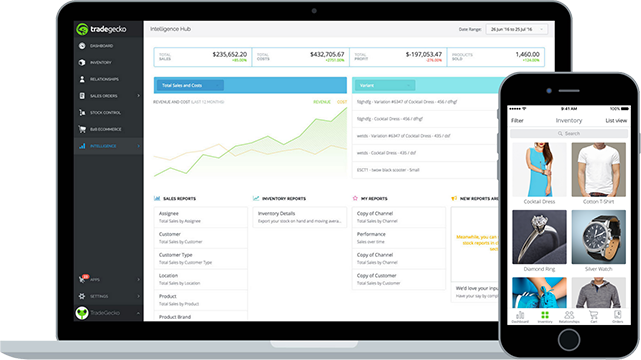Supply chain management involves controlling the upstream and downstream flow of materials and finances from sourcing to manufacturing and distributing, to retailing and finally into the hands of the end consumer. Efficient supply chain management also ensures that a company maintains a constant flow of fresh products at an optimal level that matches customer demand while keeping inventory levels at a minimum to minimize carrying costs.

What is supply chain management for wholesale?
If you’re running a wholesale business, supply chain management involves either manufacturing or procuring your products from a manufacturer and ensuring these products reach your retailers at the right time to meet their customer demand. As a wholesale business owner, you will be dealing with large volumes of goods, which translates to high carrying costs as you have to ensure that your products are stored well and are still in good condition when they reach your retailers.
How to succeed at supply chain management:
Ensure you have visibility of your stock
Using cloud software for supply chain management keeps you updated in real time. You’ll be able to monitor your supply chain from end to end, allowing you to spot slow-moving shipments. You'll also want to consider inventory management systems that come with warehouse management functions if you have stock in different locations.
You’ll also be able to ensure that all relevant parties have access to timely information. If you have a brick and mortar store and an eCommerce store in addition to your wholesale business, you’ll want to have real time stock updates in order to minimize the risk of overselling. Unexpected events like machinery breakdowns or natural disasters can disrupt your supply chain. If everything you need is stored in the cloud, you'll be able to get things up and running quickly.

Analyze your sales data
The whole point of supply chain management is to ensure that there is just enough supply to meet demand. Analyzing your past data enables you to stay on top of existing trends, helping you to anticipate the demand for your product across different channels.
With cloud software that connects your different sales channels together, you’ll be able to generate business intelligence reports that cover sales performance according to channel and your bestsellers. Furthermore, business intelligence reports on customer behavior can also help you to anticipate their future orders, which could be invaluable for B2B. If a large customer tends to order products in the first week of every month, you can tailor personalized emails that include a list of recommended products they might want to add to their order.
Communicate and collaborate with everyone in your supply chain
With better visibility and business intelligence at your fingertips, the next step is to communicate these to other stakeholders and work with them to ensure an optimal supply chain.
Communication enables you to build trust, particularly if you're a wholesaler with retailers downstream in your supply chain. If there is a chance that there is supply chain disruption on your end that could lead to the delayed arrival of your products for your retailers, communicating these incidents to your retailers allows them to take mitigating measures.

If you communicate your vision to your stakeholders, they’ll understand and be more likely to be excited by your proposal. After that, it’s time to collaborate with them on building standard metrics and key performance indicators to ensure that all parties are aligned and working towards the same goal.
In conclusion, supply chain management for your wholesale business involves balancing customer demand and costs. It requires smooth communication between upstream and downstream parties in your supply chain, visibility of stock movement, and regular analysis of sales data to help you better identify market trends.








